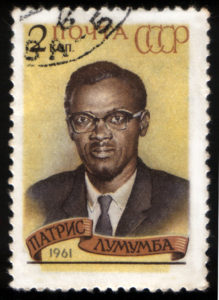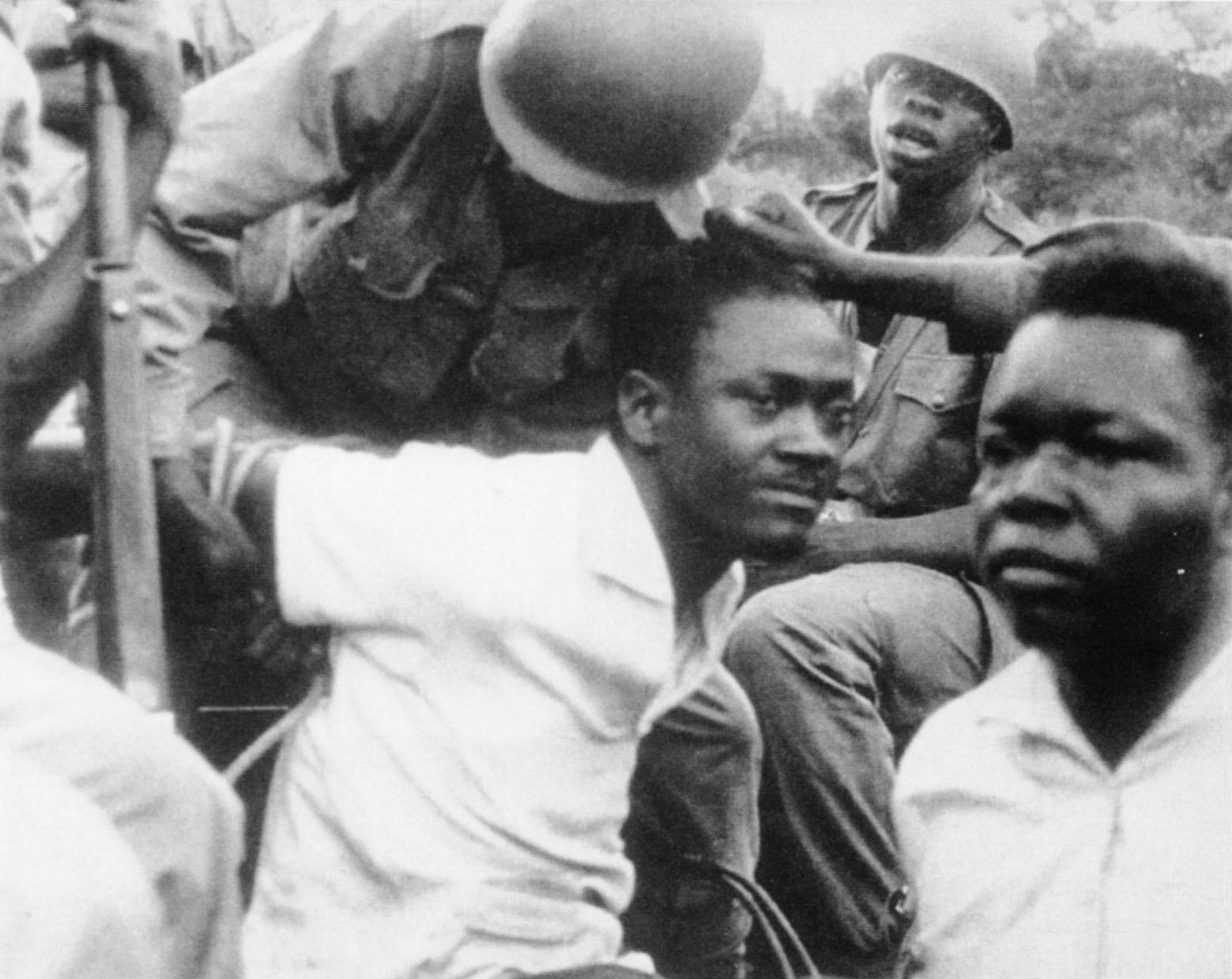(The Verge) – This past Monday, January 28th at 7:30pm, was the first installment of the Provost’s Film Series in 2013 at Monmouth University.
The title of the 2012-13 series is African Journeys: Haunting Legacies, Fragile Futures. The Provost’s Office and the Office of Global Initiatives organize the Provost’s Film Series, which is free and open to the public.
According to the Center for The Arts on the Monmouth University website: “The films to be shown will capture the tribal and colonialist legacies—and the responses of various African nations to them—as well as the challenging economic, social, cultural, and ecological realities that these nations and communities face in the future.”
Dr. Thomas Pearson, Provost and Vice President for Academic Affairs, hosted Monday’s screening of the film Lumumba. This film is based on the true story of Patrice Lumumba’s rise to power as a leader in the independent Congo, as well as his violent assassination.
Haitian director Raoul Peck created a film that shows the political strife in the Congo, but also the personal life of Lumumba and his family and supporters. The film’s representation of Lumumba, according to Pearson, was extremely accurate. It is also Raoul Peck’s most celebrated film, and it fulfilled a personal mission for him: to tell this passionate story.
“It [the film] focuses on the personal side of Lumumba, rather than all the complex economic and political factors that caused the disaster in the Congo and led to Lumumba’s assassination,” said Pearson.

Pearson gave an introduction to the film and its background, while also explaining personal ties he has to it. “I was an exchange scholar in the Soviet Union in 1975 to 1976 and while I was there I was fascinated to be hearing about Patrice Lumumba’s legacy,” he said.
The Friendship University that was founded in Moscow in 1960 was renamed Patrice Lumumba University just one year later, after the icon’s death, said Pearson. That university today is known as the People’s Friendship University of Russia, and it is ranked as the third most prestigious institution of higher learning in the entire country.
In 1960 the university brought in 500 students from Africa, Asia, and South America who were interested in studying agriculture, the sciences and engineering, while also being exposed to Marxism and Leninism. Today at this university, there are over 10,000 students, many from those countries, studying in the sciences and technical fields.
“Tonight’s film also builds on the themes of racism and colonial exploitation that we saw in our first film a couple of months ago”, said Pearson. This film was called Camp de Thiaroye and was screened at Pollok Theater on November 12th. Camp de Thiaroye is a semi-autobiographical film by Ousmane Sembene. This film is about black soldiers who helped to defend France in the Algerian War, but were captured and kept in prison before being deported home.
With Lumumba, it depicts situations that took place about fifty years later, after the events from Camp de Thiaroye took place. It shows a time when the scramble for Africa among old colonial powers is almost over because powers such as Belgium, England, France and Germany could not afford an empire anymore.
Around 1960, about thirty or more states in Africa became independent and many of the colonial powers turned over control to the new generation of African leaders, and Patrice Lumumba was among these leaders.
The situation in the Congo in 1959 to 1961 was especially tumultuous. It is estimated that about ten million Congolese people died of disease, starvation, mistreatment, war, and even execution during the reign of King Leopold II, said Pearson.
The film jumps into the middle of the action and conflict in the Congo in 1959-1960. During this time, Belgium was pulling out of the Congo and several Congolese leaders competed for the power to bring their vision to the newly independent country.
In addition to the competition between these Congo leaders, there is also a clash with Western powers, including the United States, European powers, and the United Nations, who are all working against the Soviet Union from 1959-1961. There were even State Department analysts who at one time compared Patrice to Fidel Castro, who was gaining power at a similar time period.
In his film, Peck represents Lumumba as a strong advocate for independence, rather than a communist threat. Pearson said, “Peck pulls no punches here in terms of where his sympathies lie.” In the film he is represented most memorably during a historical speech he made on Independence Day, June 30th, 1960.

In this scene, he is shown to be a charismatic visionary for national liberation and African unity, said Pearson. He is not portrayed as the manipulated puppet of the Soviets, which he was misunderstood to be by the U.S. and the U.N. He was even betrayed by his long time allies, including the Congo President at the time.
After the film, Professor Julius Adekunle from the History and Anthropology department at Monmouth joined Pearson to talk about his own experiences, having grown up himself in Africa.
Adekunle remembers learning of Lumumba’s assassination and the film had a high level of historical accuracy. He recalled that the atrocities of the colonial powers in Africa occurred primarily because of one major problem, a lack of an educated elite.
Both Adekunle and Pearson agreed with the film’s belief that Lumumba came fifty years ahead of his time. The superpowers of the world and even his own allies believed him to be a dangerous radical, while he was trying to bring the control of the Congo to its own people, and remove the remains of colonization.
Although the subject was charismatic and ambitious, he was surrounded by dangerous people. The Congo was not ready for the type of leadership that he had to offer, and the superpowers of the word believed he learned too far to the left, and might even be in support of Communism. This caused him to be a destabilizing force in the Congo, and ultimately lead to his assassination.
Such a dramatic film sheds light on the current political conflicts that are still present today in Africa, and around the world. The next film in the series is called Bamako, and will be played on Tuesday, February 26th at 7:30pm in Pollak Theatre.




